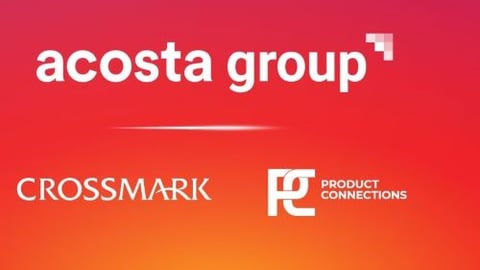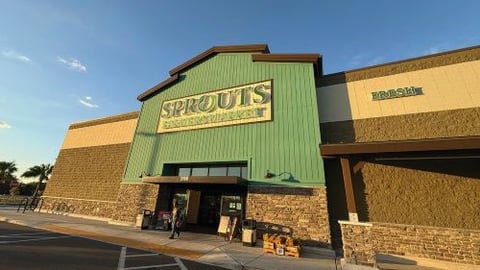THE FRIDAY 5: Kroger’s Rollercoaster Year; ALDI Plots Course for U.S. Dominance
Welcome to a special edition of The Friday 5, Progressive Grocer’s weekly roundup of the top news and trends in the food retail industry. This Friday, we’re taking a look at the stories that were most important to our readers in 2024.
1. The Grocery Merger That Almost Was
The story that rightfully stole PG readers’ attention this year was the almost-merger between The Kroger Co. and Albertsons Cos. that ended in a broken agreement and a lawsuit. While the two companies entered into a $24.6 billion merger agreement in late 2022, by early 2024 the merger was delayed when the FTC and nine state attorneys sued to stop the proposed merger, saying that the grocers’ divestiture proposal with C&S Wholesale Grocers "falls far short of mitigating the lost competition between Kroger and Albertsons."
State attorneys in Colorado and Washington state also sued to block the proposed merger, and in July, Denver District Court Judge Andrew J. Luxen temporarily halted the merger proceedings, granting a preliminary injunction and ordering a two-week trial. That trial ended in October, as did court proceedings in Seattle.
While defending themselves in federal court against the FTC, Kroger and Albertsons contended that if the injunction to pause the merger were to be granted, it would likely end the merger outright and present an issue for Albertsons, which had been having difficulty competing against the “Goliaths” of food retailing, i.e. Walmart, Costco, Target and Amazon.
That came to fruition on Dec. 10 when U.S. District Judge Adrienne Nelson ruled in favor of the FTC and its mission seeking “extraordinary relief” to stop the companies from proceeding with their planned tie-up.
“There is ample evidence that the divestiture is not sufficient in scale to adequately compete with the merged firm and is structured in a way that will significantly disadvantage C&S as a competitor. C&S' history of unsuccessful grocery store ventures and its continuing dependence on defendants throughout the TSA period also suggest that the divestiture will not adequately restore competition,” Nelson wrote in her ruling.
Later that same day, Washington’s King County Superior Court Judge Marshall Ferguson ruled that the merger was unlawful and could not move forward in that state.
In a stunning move on Dec. 11, Albertsons terminated the merger agreement and filed a lawsuit against Kroger for willful breach of contract and breach of the covenant of good faith, stating that Kroger failed to exercise “best efforts” and to take “any and all actions” to secure regulatory approval of the companies’ agreed merger transaction. Kroger maintains that Albertsons’ claims are baseless and without merit.
Albertsons CEO Vivek Sankaran asserted that the company is starting its next chapter in strong financial condition with a track record of positive business performance, and has invested in its core business and new sources of revenue, while also rolling out new technologies. The grocer will release its Q3 2024 financial report on Jan. 8, and will also share more of its plan to create long-term value and return cash to its stockholders.
As for Kroger, the grocer also decided that the merger was “no longer in its best interests to pursue,” and revealed that it is resuming share repurchases after a more than two-year pause. The company also plans to hold an Investor Day event in late spring to discuss its strategic priorities, future growth prospects and long-term financial outlook.
2. PG Awards Programs Take Top Spots
Readers this year were intrigued by PG’s proprietary awards programs, especially the 2024 class of Top Women in Grocery honorees. This year, judges evaluated an astonishing 1,150-plus submissions and were heartened by the myriad stories of grit, perseverance, ingenuity and sheer love of the industry.
The 425 profiles illustrate the many different paths that the 2024 class of Top Women took to achieve their current levels of achievement as Senior-Level Executives, Rising Stars or Store Managers in the realms of retail, CPGs, marketing, tech and more.
Readers were also interested in The PG 100, which was released in May and detailed the top food retailers in terms of revenue. The annual ranking remained relatively stable at the top, with the notable changes being Walgreens Boots Alliance slipping to sixth place from fifth, CVS Health moving up two notches to fifth place, Target moving down to No. 7, and Loblaws Cos. Ltd. (No. 10) and Ahold Delhaize USA (No. 11) swapping places from last year.
Another notable list from this year was PG’s top regional grocers, which included the likes of Stater Bros., Lowes Foods, Kowalski’s Markets and more. The Outstanding Independents of 2024 also garnered clicks, spotlighting Harmons Grocery, Nugget Markets, PCC Community Markets and many others that anticipate the needs of area shoppers and create long-lasting bonds with their local communities.
3. Stop & Shop Shrinks Its Footprint
News broke in July that Ahold Delhaize-owned Stop & Shop would shutter 32 underperforming stores throughout its footprint on or before Nov. 2. Following the closures, Stop & Shop still operates more than 350 stores across its operating area: 81 in Connecticut, 115 in Massachusetts, 47 in New Jersey, 91 in New York and 25 in Rhode Island.
“Stop & Shop is proud of the deep roots and community ties we have developed as a neighborhood grocer of more than 100 years, and we remain committed to nourishing our associates, customers and communities,” said Gordon Reid, president of Quincy, Mass.-based Stop & Shop, at the time. “As we announced in May, Stop & Shop has evaluated its overall store portfolio and made the difficult decision to close underperforming stores to create a healthy base for the future growth of our brand.”
Meanwhile, PG’s coverage of parent company Ahold Delhaize also gained reader interest this year. The grocery conglomerate’s Growing Together strategy has offered a roadmap for growth across all of its banners, particularly in the United States, where its Food Lion, Giant Food, The Giant Co., Hannaford and Stop & Shop stores comprise “the largest retail group on the East Coast,” according to Ahold Delhaize USA CEO JJ Fleeman.
Going forward, according to Fleeman, the U.S. operations will “continue to grow and expand our business. We’ll also expand in markets where we have density, grow our relationships with existing customers and make smart investments. … We will leverage both our local connections and our scaled opportunities to expand our portfolio. While our brands lead in the majority of their markets, it’s important to note that there’s still significant room for growth.
"Over the next four years, we’ll increase brand strength and density. By remodeling and/or adding more than 1,000 stores, we will strengthen our value proposition by investing over $1 billion in price, while at the same time expanding digital relationships and e-commerce capabilities. We will lead, we will grow, and we will differentiate our own brands by aligning our assortment to leverage scale and to innovate to get to the core of what customers need from our brands.”
4. ALDI’s Banner Year
Back in March, ALDI shared its incredibly ambitious growth plans as it worked to expand its footprint across the United States. The discount grocer plans to open 800 new stores by the end of 2028, encompassing both organic growth and store conversions following its acquisition of Southeastern Grocers.
The acquisition of Southeastern Grocers and its Winn-Dixie and Harveys Supermarket banners is expected to drive significant growth in the Southeast over the next few years. Over the summer, ALDI began a phased approach to converting stores, with plans for approximately 50 locations to begin the conversion process during the second half of 2024.
"With the acquisition of Winn-Dixie and Harveys Supermarkets, ALDI will serve even more communities in the Southeast, bringing us closer to our customers in a region where we've already experienced significant demand for affordable, quality groceries," said ALDI CEO Jason Hart. "As we look ahead to this next chapter in our company history, both the ALDI and SEG teams will play a critical role in driving the business forward for our future collective success."
ALDI also plans to grow its presence in the Northeast and Midwest, adding nearly 330 stores across both regions. The grocer will also increase its store court in the West by adding more locations in Southern California and Phoenix, and by entering new markets, including Las Vegas.
5. Boar’s Head Outbreak Sends the Industry Reeling
Perhaps the most-covered listeria outbreak of the year happened in late July, when Boar's Head Provisions Co. Inc. recalled all of its liverwurst products and later found out from the USDA that its Strassburger Brand Liverwurst was linked to the national deadly Listeria monocytogenes outbreak.
The company’s plant in Jarratt, Va., which was linked to the outbreak that resulted in several deaths, was reported to have had "heavy discolored meat build up" on a hydraulic pump, flies in pickle vats, a "steady line of ants" and "a presence of flying insects" in one of the rooms, along with many other infractions.
Boar’s Head said it "deeply regret[s] the impact this recall has had on affected families," and that food safety is an "absolute priority."
"As a USDA-inspected food producer, the agency has inspectors in our Jarratt, Virginia plant every day and if at any time inspectors identify something that needs to be addressed, our team does so immediately, as was the case with each and every issue raised by USDA in this report," the statement said.
In September, Boar's Head shut down that production plant and also reported that it hired Frank Yiannas, former deputy commissioner for food policy & response at the FDA, to serve as its interim chief food safety advisor. Yiannas will help ensure the organization’s commitment to leading standards of food safety and quality and will also spearhead the nationwide search for an expert to succeed him in the position on a permanent basis.







